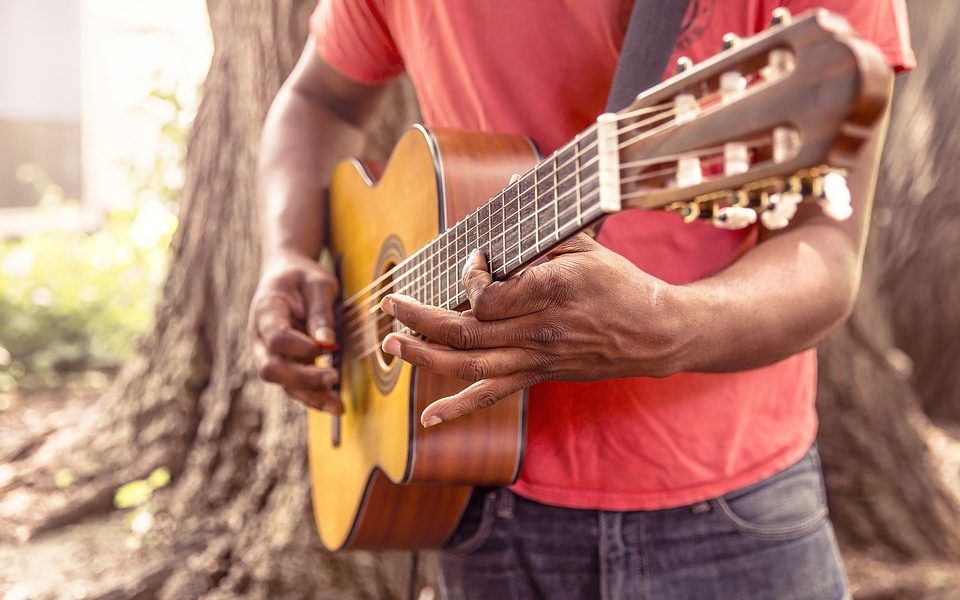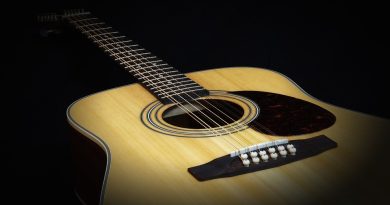Mastering Guitar Soloing: Tips and Techniques Every Guitarist Should Know
Mastering Guitar Soloing: Tips and Techniques Every Guitarist Should Know
Playing guitar solos is one of the most exciting and rewarding aspects of being a guitarist. It allows you to showcase your creativity and musicality while adding a personalized touch to your music. However, mastering guitar soloing can be a challenging task that requires dedication, practice, and a solid understanding of various techniques. In this article, we will discuss some tips and techniques that every guitarist should know in order to improve their soloing skills.
1. Develop your ear
One of the most important skills for any guitarist is the ability to listen and play by ear. Developing your ear will help you to improvise and play solos more confidently. You can improve your ear training by practicing scales, chords, and melodies by listening and then playing them on your guitar. This will help you to recognize different intervals, patterns, and melodies, making it easier for you to create your own solos.
2. Learn scales and modes
Scales and modes are the building blocks of guitar soloing. By familiarizing yourself with different scales and modes, you can create interesting and melodic solos. Some of the most commonly used scales for soloing include the pentatonic scale, blues scale, and major scale. By practicing these scales in different keys and positions on the fretboard, you can improve your soloing skills and develop a better sense of musicality.
3. Experiment with phrasing and dynamics
Phrasing and dynamics are crucial elements in creating a memorable guitar solo. By experimenting with different phrasing techniques, such as bending, sliding, and vibrato, you can add expressiveness and emotion to your solos. Dynamics, on the other hand, refer to the variation in volume and intensity during a solo. By playing with dynamics, you can create tension and release within your solos, making them more engaging and dynamic.
4. Study the techniques of your favorite guitarists
One of the best ways to improve your guitar soloing skills is to study the techniques of your favorite guitarists. By learning from their solos and incorporating their techniques into your own playing, you can develop a unique and personalized style. Take the time to analyze the solos of guitarists such as Jimi Hendrix, Eric Clapton, and David Gilmour, and try to replicate their phrasing, tone, and technique in your own solos.
5. Practice improvisation
Improvisation is a fundamental skill for any guitarist looking to master soloing. By practicing improvisation regularly, you can develop your ability to think on your feet and create spontaneous, creative solos. Start by improvising over backing tracks or jamming with other musicians to improve your ability to react to different musical situations. Remember, improvisation is all about taking risks and experimenting with new ideas, so don’t be afraid to make mistakes and push yourself out of your comfort zone.
6. Use pedals and effects
Pedals and effects can enhance your guitar solos and add dimension to your sound. Experiment with different pedals, such as delay, reverb, and distortion, to create unique and interesting tones for your solos. By using effects creatively, you can achieve a wide range of sounds and textures that will help you stand out as a guitarist. Remember to use effects tastefully and purposefully, as too much can detract from your playing.
7. Record and analyze your solos
Recording your solos is a great way to track your progress and identify areas for improvement. By listening back to your recordings, you can analyze your solos, identify strengths and weaknesses, and make adjustments to your playing. Take note of your phrasing, timing, dynamics, and tone, and look for ways to refine your solos. Recording your solos also allows you to experiment with different ideas and approaches, helping you to develop your own unique style as a guitarist.
In conclusion, mastering guitar soloing requires dedication, practice, and a willingness to push yourself out of your comfort zone. By developing your ear, learning scales and modes, experimenting with phrasing and dynamics, studying the techniques of your favorite guitarists, practicing improvisation, using pedals and effects, and recording and analyzing your solos, you can improve your soloing skills and become a more confident and expressive guitarist. Remember, mastering guitar soloing is a lifelong journey, so be patient, persistent, and open to new ideas and techniques. Happy playing!






